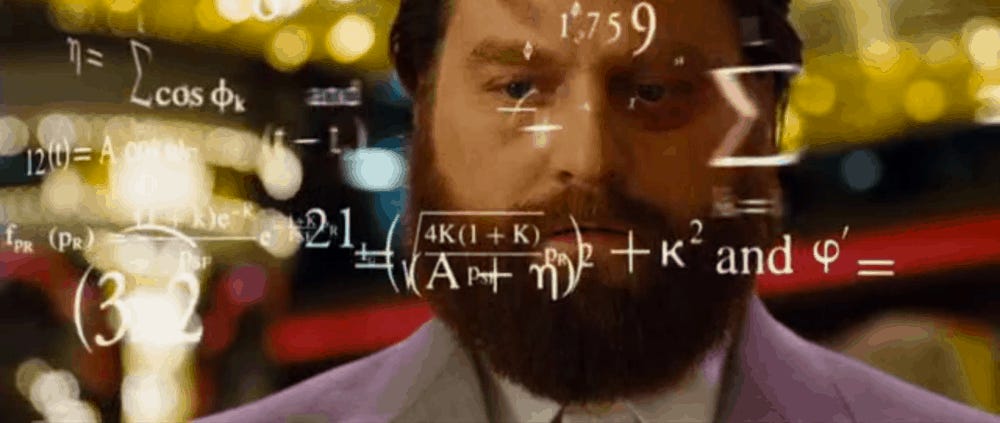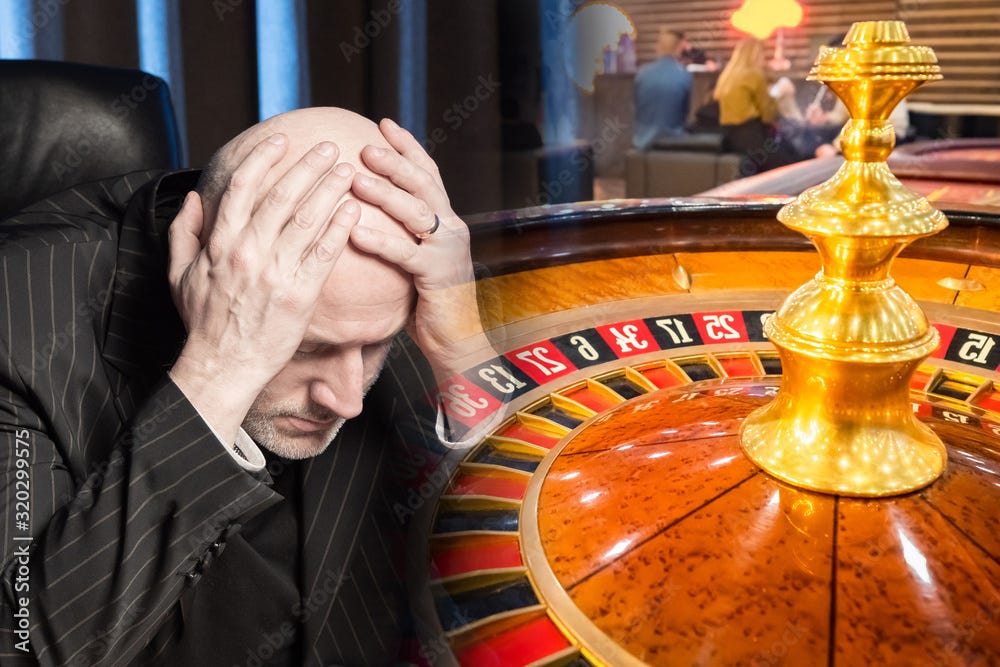Gambling is great. I think we should introduce all of our kids to gambling. It’s a great game mechanic that teaches probability and risk assessment, as well as life lessons about ego, bravado, and humility. It’s unfortunate that “gambling” in popular discourse today is the perverted and commodified version created by casinos. Modern gambling is optimized for profit and bereft of the intellectual challenge and soul-enriching experiences that gambling could offer.
The Educational Value of Gambling
At its core, gambling is about assessing probability. Humans are notoriously bad at judging probability, and our education system does a poor job of teaching it. Hands-on experience with probability would go a long way in developing intuition. What are the odds that I can sprint faster than Timmy, that my poker hand is stronger, or that my favorite sports team will win tomorrow? It’s one thing to be taught that at arm’s length in a classroom, but it’s quite another to actually make those assessments yourself, putting a few dollars or marbles on the line.
Gambling is also a fantastic game mechanic that adds nuance and strategy to otherwise simple games. Be it poker, backgammon, or Marvel Snap, gambling elements introduce a skill component to assessing the board state in addition to executing your strategy. Wagers also speed up the game pace and create emotional highs, as I elaborate on in this article. Analogous scenarios occur all the time in real life – deciding when to quit or double-down, dealing with sunk cost fallacy, etc. Gambling games offer a safe space to develop these skills.
There is also a deeply emotional and social component to gambling. Kids on the playground are notorious for outlandish claims. Johnny says he’s the best at this, he says his dad can do that better than your dad, etc. Social hierarchies are often led by the most braggadocious kids rather than the most competent – any failure can be waved away with rhetoric and charisma. Wagering on boastful claims forces people to put their money where their mouth is. Is Johnny really the best at Mario Kart? I bet $5 I can beat him. Money-matches force the loser to “hold that L”. Johnny can’t claim “I wasn’t really trying” if there was something significant on the line. This sort of gambling also teaches kids about the advantages of modesty. Sometimes it is better to under-state your abilities.
The emotional intensity of gambling has powerful psychological effects that skew decision-making. Johnny might be better at Mario Kart in a comfortable setting, but will the nerves of a high-stakes race affect his performance? If he goes on a win streak, will he have the presence of mind to quit while he’s ahead? There’s plenty of pop psychology books on probability’s effects on the human brain, notably Fooled by Randomness and The Drunkard’s Walk, but rarely do they discuss the value of introducing kids to these experiences early in their education.
Where Casinos go Wrong
Critically, all the aforementioned benefits from gambling can be created with minor stakes. There is no need to risk anything of life-changing value. This is where casinos stray into depravity. Casinos make profit as a percentage of the quantity wagered. As such, they encourage customers to wager as much as possible. “High-roller” lifestyle is glamorized and showered with positive social attention. It is much easier to convince someone to double their roulette wager than to double the number of hamburgers they eat. As the stakes get higher and higher, real financial ruin looms on the next spin. Financial ruin does not need to be part of gambling, but casinos make it so in search of profits.
On top of all that, casinos actively make games worse, only offering the most braindead and degenerate games. Strategically rich gambling games like poker, gin rummy, and mahjong are deemphasized in favor of pure luck games like roulette and craps. Casinos can lose at skill games, as made famous by blackjack card-counting. Instead, casinos choose to run pure luck games so that the house can always win. Arguably they shouldn’t even be called “games” because there is no meaningful player agency or decision-making.
These perversions are a result of the commodification of gambling games. Casinos want to standardize and scale up gambling to maximize profits. Removing skill allows games to appeal to the lowest common denominator while reducing overhead costs. There’s no need to sort players based on skill level or to train judges to arbitrate gameplay disputes. In commodified games like roulette or craps, the game operator has to follow a simple script and keep the vibes good. Guardrails on bet limits are removed and players are encouraged to make poor financial decisions. The focus is no longer on creating an enjoyable game experience but rather to scale up the operation as large as possible.






Great article. My love for gambling goes back to the Oregon trail and my father’s love of simulation games that taught me consequences. (Simfarm, simtower, Theme park). To fill that need now I play Rimworld.